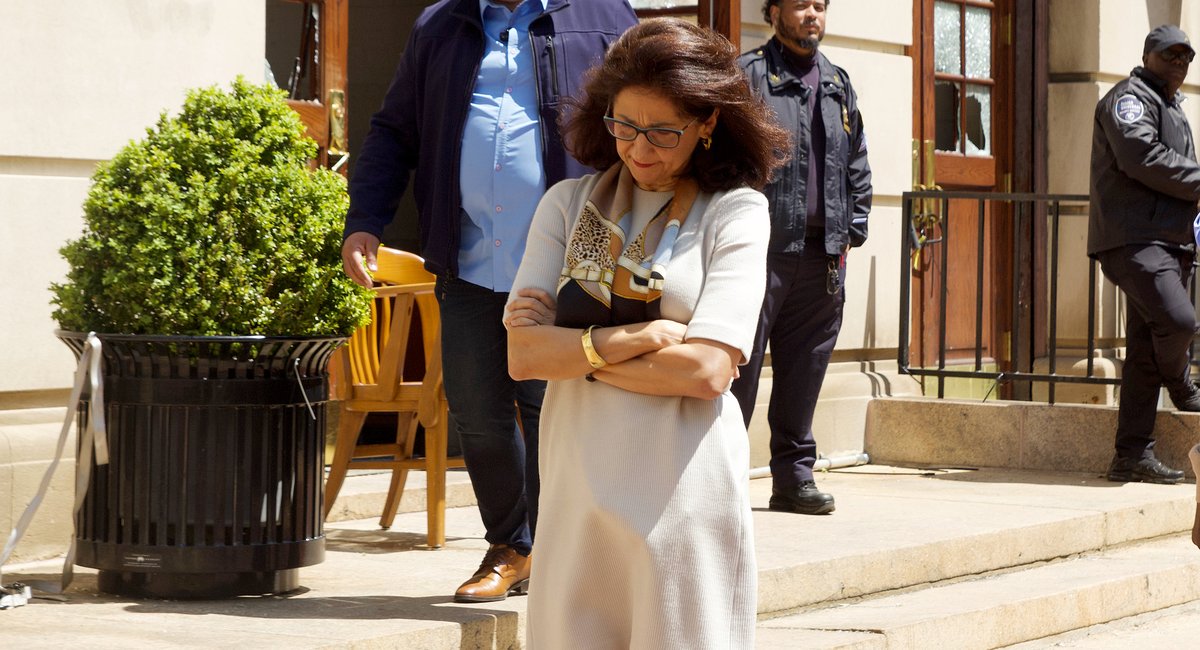Columbia University President Minouche Shafik announced her resignation in a message sent to students and faculty on Wednesday.
Shafik’s sudden departure comes after student protests over the Israel-Hamas war engulfed the campus, garnering national attention. In her message, Shafik described the past year as “a period of turmoil where it has been difficult to overcome divergent views across our community.”
”This period has taken a considerable toll on my family, as it has for others in our community,” she wrote. “Over the summer, I have been able to reflect and have decided that my moving on at this point would best enable Columbia to traverse the challenges ahead.”
The Ivy League institution found itself at the center of national news as numerous campus-wide anti-war protests reached universities and colleges across the nation. In one incident in April, more than 100 people were arrested at its Morningside Heights campus in Manhattan following student protests related to the conflict in the Middle East.
As tensions escalated over the school year, classes were canceled or moved online as the university began restricting student protests, including banning speakers and microphones and taking steps to identify masked protesters.
The protests led Mayor Eric Adams to vow that the NYPD would begin arresting student protesters, even without the permission of university officials.
In preparation for the fall semester, Columbia University took steps this month to restrict access to its campus, by limiting it to those with student IDs and other authorized guests.
In the letter, the former president said that she and her family had faced “threats and abuse” and expressed hope that the university community would begin “treating each other with dignity and respect.”
Shafik also announced that she would soon chair a review of the UK government’s approach to international development at the request of the UK foreign secretary.
In a letter to the university community, David Greenwald and Claire Shipman, co-chairs on behalf of the trustees of Columbia University, said they were “disappointed to see her leave,” but they “understand and respect her decision.”
“In this difficult year, Minouche has worked, inspired, and led tirelessly. Her wisdom, empathy, and deep commitment to our community have guided us through challenges that are both unique in scale and unique to this moment,” they wrote in the letter. “She achieved significant accomplishments for the University, including a set of strategic initiatives on academic excellence, operational efficiency, and community designed to help our institution flourish.”
Greenwald and Shipman also said Dr. Katrina Armstrong, who leads the university’s health and biomedical sciences campus, had agreed to serve as interim president.
Shafik — who became Columbia University’s first woman president last year — led the Ivy League institution through a turbulent period. She had been part of a wave of women newly appointed to lead Ivy League universities across the country.
She previously led the London School of Economics and had also worked at the World Bank, where she rose through the ranks to become its youngest ever vice president.
